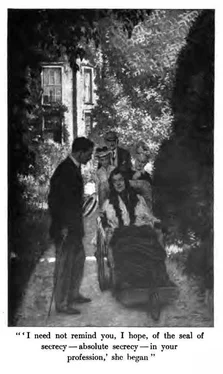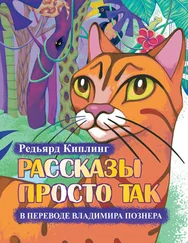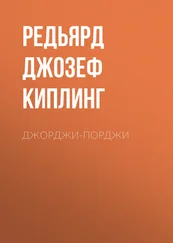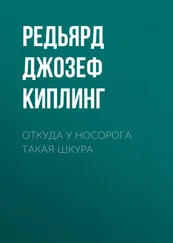"I had two of the second Melik–meid's pups," said Farag's uncle. "They died of the madness in their ninth month."
"And how did they do before they died?" said the Inspector.
"They ran about in the sun, and slavered at the mouth till they died."
"Wherefore?"
"God knows. He sent the madness. It was no fault of mine."
"Thy own mouth hath answered thee." The Inspector laughed. "It is with men as it is with dogs. God afflicts some with a madness. It is no fault of ours if such men run about in the sun and froth at the mouth. The man who is coming will emit spray from his mouth in speaking, and will always edge and push in towards his hearers. When ye see and hear him ye will understand that he is afflicted of God: being mad. He is in God's hands."
"But our titles—are our titles to our lands good?" the crowd repeated.
"Your titles are in my hands—they are good," said the Governor.
"And he who wrote the writings is an afflicted of God?" said Farag's uncle.
"The Inspector hath said it," cried the Governor. "Ye will see when the man comes. O sheikhs and men, have we ridden together and walked puppies together, and bought and sold barley for the horses that after these years we should run riot on the scent of a madman—an afflicted of God?"
"But the Hunt pays us to kill mad jackals," said Farag's uncle. "And he who questions my titles to my land—"
"Aahh! 'Ware riot!" The Governor's hunting–crop cracked like a three–pounder. "By Allah," he thundered, "if the afflicted of God come to any harm at your hands, I myself will shoot every hound and every puppy, and the Hunt shall ride no more. On your heads be it. Go in peace, and tell the others."
"The Hunt shall ride no more," said Farag's uncle. "Then how can the land be governed? No—no, O Excellency Our Governor, we will not harm a hair on the head of the afflicted of God. He shall be to us as is Abu Hussein's wife in the breeding season."
When they were gone the Governor mopped his forehead.
"We must put a few soldiers in every village this Groombride visits, Baker. Tell 'em to keep out of sight, and have an eye on the villagers. He's trying 'em rather high."
"O Excellency," said the smooth voice of Farag, laying the Field and Country Life square on the table, "is the afflicted of God who resembles Bigglebai one with the man whom the Inspector met in the great house in England, and to whom he told the tale of the Mudir's Cranes?"
"The same man, Farag," said the Inspector.
"I have often heard the Inspector tell the tale to Our Excellency at feeding–time in the kennels; but since I am in the Government service I have never told it to my people. May I loose that tale among the villages?"
* * * * *
The Governor nodded. "No harm," said he.
The details of Mr. Groombride's arrival, with his interpreter, whom he proposed should eat with him at the Governor's table, his allocution to the Governor on the New Movement, and the sins of Imperialism, I purposely omit. At three in the afternoon Mr. Groombride said: "I will go out now and address your victims in this village."
"Won't you find it rather hot?" said the Governor. "They generally take 'a nap till sunset at this time of year."
Mr. Groombride's large, loose lips set. "That," he replied pointedly, "would be enough to decide me. I fear you have not quite mastered your instructions. May I ask you to send for my interpreter? I hope he has not been tampered with by your subordinates."
He was a yellowish boy called Abdul, who had well eaten and drunk with Farag. The Inspector, by the way, was not present at the meal.
"At whatever risk, I shall go unattended," said Mr. Groombride. "Your presence would cow them—from giving evidence. Abdul, my good friend, would you very kindly open the umbrella?"
He passed up the gang–plank to the village, and with no more prelude than a Salvation Army picket in a Portsmouth slum, cried: "Oh, my brothers!"
He did not guess how his path had been prepared. The village was widely awake. Farag, in loose, flowing garments, quite unlike a kennel huntsman's khaki and puttees, leaned against the wall of his uncle's house. "Come and see the afflicted of God," he cried musically, "whose face, indeed, resembles that of Bigglebai."
The village came, and decided that on the whole Farag was right.
"I can't quite catch what they are saying," said Mr. Groombride.
"They saying they very much pleased to see you, Sar," Adbul interpreted.
"Then I do think they might have sent a deputation to the steamer; but I suppose they were frightened of the officials. Tell them not to be frightened, Abdul."
"He says you are not to be frightened," Abdul explained. A child here sputtered with laughter. "Refrain from mirth," Farag cried. "The afflicted of God is the guest of The Excellency Our Governor. We are responsible for every hair of his head."
"He has none," a voice spoke. "He has the white and the shining mange."
"Now tell them what I have come for, Abdul, and please keep the umbrella well up. I think I shall reserve myself for my little vernacular speech at the end."
"Approach! Look! Listen!" Abdul chanted. "The afflicted of God will now make sport. Presently he will speak in your tongue, and will consume you with mirth. I have been his servant for three weeks. I will tell you about his undergarments and his perfumes for his head."
He told them at length.
"And didst thou take any of his perfume bottles?" said Farag at the end.
"I am his servant. I took two," Abdul replied.
"Ask him," said Farag's uncle, "what he knows about our land–titles. Ye young men are all alike." He waved a pamphlet. Mr. Groombride smiled to see how the seed sown in London had borne fruit by Gihon. Lo! All the seniors held copies of the pamphlet.
"He knows less than a buffalo. He told me on the steamer that he was driven out of his own land by Demah–Kerazi which is a devil inhabiting crowds and assemblies," said Abdul.
"Allah between us and evil!" a woman cackled from the darkness of a hut. "Come in, children, he may have the Evil Eye."
"No, my aunt," said Farag. "No afflicted of God has an evil eye. Wait till ye hear his mirth–provoking speech which he will deliver. I have heard it twice from Abdul."
"They seem very quick to grasp the point. How far have you got, Abdul?"
"All about the beatings, sar. They are highly interested."
"Don't forget about the local self–government, and please hold the umbrella over me. It is hopeless to destroy unless one first builds up."
"He may not have the Evil Eye," Farag's uncle grunted, "but his devil led him too certainly to question my land–title. Ask him whether he still doubts my land–title?"
"Or mine, or mine?" cried the elders.
"What odds? He is an afflicted of God," Farag called. "Remember the tale I told you."
"Yes, but he is an Englishman, and doubtless of influence, or Our Excellency would not entertain him. Bid the down–country jackass ask him."
"Sar," said Abdul, "these people, much fearing they may be turned out of their land in consequence of your remarks. Therefore they ask you to make promise no bad consequences following your visit."
Mr. Groombride held his breath and turned purple. Then he stamped his foot.
"Tell them," he cried, "that if a hair of any one of their heads is touched by any official on any account whatever, all England shall ring with it. Good God! What callous oppression! The dark places of the earth are full of cruelty." He wiped his face, and throwing out his arms cried: "Tell them, oh! tell the poor, serfs not to be afraid of me. Tell them I come to redress their wrongs—not, heaven knows, to add to their burden."
The long–drawn gurgle of the practised public speaker pleased them much.
Читать дальше












